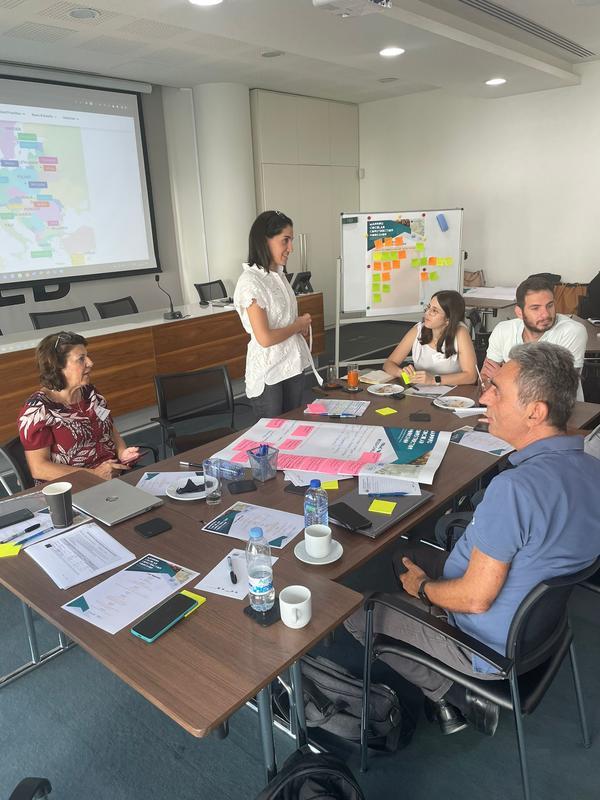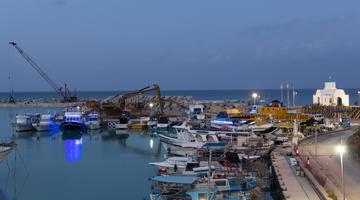Cypriot Construction Industry Seeks Circular Economy Solutions: Insights from Inaugural Workshop

The first workshop of the Cypriot Social Experiment on Circular Economy (CE) in Construction and Buildings was successfully held in October last year, drawing the participation of 22 stakeholders from across the construction industry's supply chain. This diverse group included professionals from design to waste management, as well as representatives from government and academia.
The workshop focused on discussing the current state of Cyprus's construction industry and understanding the task of transitioning to a circular economy model. Through an interactive process, participants engaged in identifying the primary barriers preventing efficient transformation and transition within the industry.
Local Challenges
In Cyprus, the construction industry plays a significant role in the island's resource use, generating large volumes of waste, the industry faces challenges due to the limited availability of waste management areas, with waste often being disposed of in non-regulated locations.
Furthermore, the island's geography results in high costs for shipping waste abroad and necessitates the import of a considerable volume of raw materials. Consequently, the construction sector substantially impacts climate goals due to its multiplier effect on energy consumption.
The workshop identified several critical barriers to the circular transition, including:
- Lack of market surveillance and effective implementation of legislation.
- The small market size in a constrained island system, which does not allow for the buildup of economies of scale.
- Limited availability and high cost of circular products and technologies.
- Lack of trust by construction industry stakeholders in circular products, due to a lack of long-term experience, knowledge, standards, and certifications.
- Absence of standards and specifications for secondary raw materials.
- Lack of linkage between research results and the market for innovative solutions and products.
- Insufficient coordination among stakeholders and absence of a leading authority.
- Lack of incentives to implement circular practices in construction projects.
Towards Practical Solutions
The workshop marked the beginning of a journey towards addressing the identified challenges, with participants proposing initial actions. These included creating platforms for collaboration and knowledge exchange, circular training and education for the construction supply chain, enhanced government incentives/subsidies, improved standards/specifications for secondary materials, and establishing a national waste/material repository to facilitate industrial symbiosis.
Furthermore, the importance of continuous engagement with research projects at both national and European levels was emphasised.
The insights gathered from this workshop are serving as a foundation for ongoing efforts under the SHARED GREEN DEAL project, aimed at developing practical solutions and new business models to catalyse the construction industry's transition to a circular economy.
Related Green Deal Priorities
Related localities
Related events


CONTACT
For further details please contact co-leads Professor Chris Foulds (chris.foulds@aru.ac.uk) and Professor Rosie Robison (rosie.robison@aru.ac.uk).

This project has received funding from the European Union’s Horizon 2020 research and innovation program under grant agreement No 101036640. The sole responsibility for the content of this website lies with the SHARED GREEN DEAL HAS project and does not necessarily reflect the opinion of the European Union.

